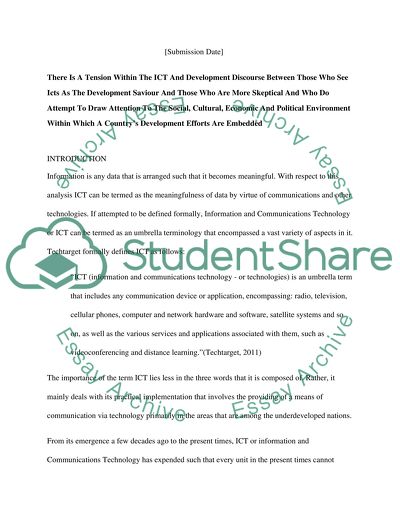Cite this document
(“ICT development Essay Example | Topics and Well Written Essays - 1250 words”, n.d.)
Retrieved from https://studentshare.org/technology/1429570-ict-development
Retrieved from https://studentshare.org/technology/1429570-ict-development
(ICT Development Essay Example | Topics and Well Written Essays - 1250 Words)
https://studentshare.org/technology/1429570-ict-development.
https://studentshare.org/technology/1429570-ict-development.
“ICT Development Essay Example | Topics and Well Written Essays - 1250 Words”, n.d. https://studentshare.org/technology/1429570-ict-development.


